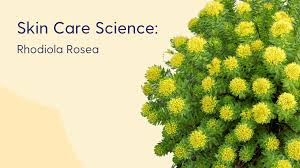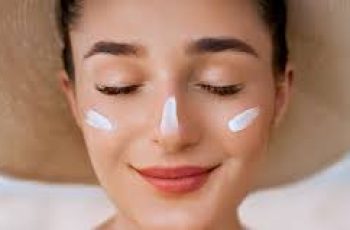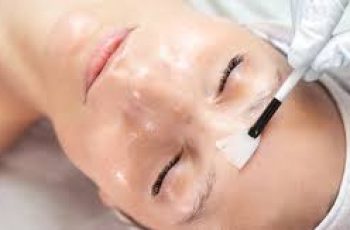The Science of Rhodiola Rosea in Skin Care
Rhodiola rosea, also known as golden root or arctic root, is an herb commonly found in cold regions of Europe and Asia. Traditionally, it has been used in folk medicine to combat fatigue, reduce stress, and improve overall health. However, rhodiola rosea is also used as a topical ingredient in skin care products for its anti-aging and anti-inflammatory properties. Here, I explain more about what this ingredient is, what it does, and who can most benefit from adding it to their skin care regimen.
Rhodiola rosea is known for its anti-aging and anti-inflammatory properties in skin care.
It contains bioactive compounds that aid in collagen production and protection.
When used topically, this ingredient comes with few side effects – but oral use can cause dizziness and excess salivation.
What Is Rhodiola Rosea?
Rhodiola rosea is a hardy perennial herb known for thriving in harsh, cold environments such as the arctic regions of Europe and Asia. It is also referred to as “golden root” or “arctic root” because of its yellowish rhizome and its remarkable ability to survive in extreme climates. It has been used in herbal medicine for centuries, thanks to its adaptogenic properties, meaning it helps the body adapt to physical, environmental, and psychological stressors.
Most recently, rhodiola rosea has been studied for its skin benefits, especially its potential to protect the skin from oxidative stress and boost collagen production. Collagen, a key protein in the skin, is responsible for maintaining skin elasticity, firmness, and overall structure. As we age, collagen production naturally declines, leading to sagging skin, wrinkles, and loss of skin elasticity. Environmental stressors like UV radiation and pollution can also accelerate collagen breakdown.
Rhodiola rosea’s bioactive compounds – particularly its antioxidants like rosavin, salidroside, and tyrosol – work together to protect collagen fibers from oxidative damage and prevent the breakdown of existing collagen. Moreover, these compounds help to stimulate fibroblast activity, the cells responsible for synthesizing collagen.
Active Compounds in Rhodiola Rosea
Let’s take a closer look a the active compounds that give rhodiola rosea its many skin benefits:
Rosavin. Rosavin is one of the primary active compounds in rhodiola rosea, and it belongs to a class of compounds called phenylpropanoids. Phenylpropanoids are known for their antioxidant and anti-inflammatory properties, making them highly beneficial for protecting the skin from damage caused by free radicals, which can otherwise cause premature aging. Additionally, rosavin stimulates fibroblasts (the cells responsible for producing collagen), enhancing the skin’s natural ability to rebuild and repair itself.
Salidroside. Salidroside is particularly beneficial for its powerful antioxidant and anti-inflammatory properties. Salidroside is a type of glycoside, a compound that consists of a sugar molecule bound to another molecule. Glycosides are known to help stabilize and deliver active ingredients to the skin, enhancing their effectiveness. Salidroside also helps to neutralize free radicals, support cellular repair by promoting healthy cell turnover, and reduces inflammation.
Tyrosol. Tyrosol is a phenolic compound with strong antioxidant and anti-inflammatory properties. It has been studied for its role in reducing oxidative damage, protecting against cellular stress, and calming inflammation, both in the body and skin. Tyrosol also helps to regulate melanin production, improving the appearance of dark spots and uneven skin tone.
Flavonoids. Rhodiola rosea also contains a range of flavonoids, which provide additional antioxidant protection. These compounds help to improve signs of aging by supporting collagen within the skin and protecting against DNA damage caused by UV light, air pollution, and other environmental stressors.
Benefits of Rhodoila Rosea for Skin
Rhodiola rosea is best known for its ability to stimulate collagen and protect the skin from free radical damage that can otherwise contribute to signs of aging like lines, wrinkles, and sagging. However, that’s not all this ingredient can do for your skin. Here are some of its most notable benefits in skin care:
Supports collagen production. The bioactive compounds in rhodiola rosea like rosavin and salidroside stimulate the cells that make collagen and repair and replace damaged cells, helping your skin to look healthier and younger. The many antioxidants in this ingredient help to protect existing collagen from oxidative damage, preserving skin elasticity and firmness over time.
Brightens skin tone. Tyrosol found in rhodiola rosea brightens skin tone by helping to regulate the production of melanin, the pigment that gives our skin its color.
Free radical protection. Rhodiola rosea’s antioxidant compounds help to protect the skin from damaging environmental stressors like UV radiation and pollution, reducing oxidative stress that leads to aging.
Reduces redness and inflammation. The anti-inflammatory properties of salidroside and tyrosol make rhodiola rosea effective at calming redness, irritation, and inflammatory skin conditions like eczema or rosacea.
Side Effects of Rhodiola Rosea
When used topically, rhodiola rosea generally comes with few side effects and is safe for most people. However, oral use of this botanical can cause side effects such as dizziness, dry mouth, or the production of excessive saliva.
Best Skin Care Products with Rhodiola Rosea
Some of the best skin care products that contain rhodiola rosea are aimed at improving signs of skin aging and brightening areas like under the eyes. SkinMedica, for example, has an eye mask that contains this brightening ingredient to remove dark circles under the eyes and reduce inflammation.
Bottom Line: IS Rhodiola Rosea Right for Me?
Rhodiola rosea is a versatile ingredient that offers a range of benefits for many different skin types. Its ability to protect against environmental damage, calm inflammation, and aid in collagen production makes it particularly effective for those with sensitive, dry, or aging skin.
If you are still not sure if this ingredient could be right for you, take the quiz below to find your Baumann Skin Type and get a customized skin care regimen that’s a match for your skin’s unique needs.
DQH Knowledge drop: In your 20s, your skin cell turnover decreases. (Cell turnover is a key component in keeping your skin youthful.) You know what else slows down? Your collagen production. Starting in your 20s, collagen decreases by about 1 percent per year. Should you want to prevent fine lines and wrinkles, start by eliminating behaviors that contribute to premature aging. “If it’s bad for you, it’s bad for your skin,” says dermatologist Michel Somenek.
“Cigarette smoking reduces blood flow to the skin and causes premature wrinkling and a dull skin texture. Making the repeated pursed motion to inhale can also cause smoker’s lines. Alcohol and recreational drugs are toxins for the skin that damage its cellular structure and DNA,” Somenek tells us. “The faster you eliminate vices while you are young, the better chance your skin and body have to recuperate.” Also, adopting an anti-aging routine in your 20s is key. After all, the best offense is a good defense. We spoke to Somenek and experts Joshua Ross and Audrey Kunin to find out more.
Keep reading for the best anti-aging products for your 20s, according to skincare professionals.
Sunscreen
“We all know that the sun is the number one cause of skin aging and starting the prevention in your 20s is very important,” Ross says. “The majority of your sun damage won’t start to appear until you’re in your 30s, so don’t wait until you see it surface or you’ll be behind the curve. Stay ahead of it with a good-quality zinc-based sunscreen worn daily.”
Farmacy Green Defense Daily Mineral Sunscreen
An invisible sunscreen with SPF 30, plus botanical extracts meant to protect skin with tons of antioxidants. Bonus: It’s clean and fine to use under makeup.
Bareminerals Complexion Rescue™ Tinted Moisturizer Broad Spectrum SPF 30
Although we recommend you use your SPF and moisturizer separately, we also understand moments when you don’t have time or energy for that extra step. For those times, this bareMinerals moisturizer is a great thing to have on hand.
Vitamin C Serum
“A great introduction to anti-aging is to start with a vitamin C serum in your morning skincare routine,” Ross says. “It’s a powerful antioxidant that will neutralize free radicals and brighten the skin.” He adds that it’s a great way to counteract the effects of the sun’s harmful rays, which, as previously mentioned, are among the biggest causes of premature aging.
Drunk Elephant C-Firma™ Vitamin C Day Serum
The Drunk Elephant C-Firma is a lightweight serum that promises to give skin a glow by combining the brightening powers of vitamin C with ferulic acid, l-ascorbic acid, and vitamin E. The included sodium hyaluronate is meant to replace hydration loss, so you shouldn’t have to deal with any irritation.
Sunday Riley C.E.O. Rapid Flash Brightening Serum
This potent serum is jam-packed with vitamin C (15 percent, to be exact), which means it’s a potential superstar at both brightening skin and dousing it in antioxidants.
Peptides
Using peptides on your skin has many benefits, says Somenek. “The skin barrier is what defends the body against pollution, UV rays, bacteria, and toxins. It can be damaged by several everyday factors. Using topical peptides aids in building a stronger barrier,” he says. “Peptides comprise elastic fibers, which are a type of protein. These fibers help to make skin appear taut and firm. Peptides can also help repair damaged skin, relieve inflammation, and even out skin tone. Some peptides can kill acne-causing bacteria that is common in 20-somethings.”
Kunin agrees, saying, “Peptides are an excellent entry point for supporting collagen.” She recommends looking for face and eye treatments that contain these collagen-boosting powerhouses.
Charlotte Tilbury Magic Eye Rescue Cream
This Charlotte Tilbury super-emollient eye cream has a base of coconut oil and shea butter (read: it’s incredibly hydrating). Botanicals plus peptides are meant to help reduce dark circles and boost collagen, respectively.
This creamy moisturizer serves up potent collagen-boosting peptides and pycnogenol, and antioxidant-rich vitamin C. “Instead of sitting on top of the skin, peptides penetrate the outer layer so they go deep. The ‘signals’ they send tell the cells to produce elastin and collagen, which are needed for youthful-looking skin,” explains Somenek.
At-Home Peel Pads
Remember that skin cell turnover fiasco we talked about earlier? One way to help support it is by exfoliating. “Exfoliation is important to help keep skin fresh and luminous,” Kunin says. She recommends using at-home peel pads as an easy and effective way to exfoliate.
“The goal in your 20s is to fight the slowing pace of cell turnover. It is wise to use products that gently exfoliate, yet still remove oil and other impurities. Products that have Alpha Hydroxy Acids (AHA) or Beta Hydroxy Acids (BHA) are a good choice.”
According to Somenek, you should only exfoliate two to three times a week. “People of all ages are guilty of over-exfoliating and that can be too much of a good thing,” he says.
Dermadoctor Kakadu C Intensive Vitamin C Peel Pad
A few swipes of this Derma Doctor powerful peel pad promise to leave your skin glowing and smooth, thanks to the seven (yes, seven) types of chemical exfoliants, including AHA and BHA. It also contains vitamin C via Kakadu plum extract for added brightening and antioxidant protection.
KEY INGREDIENTS Kakadu plum extract is sourced from the Kakadu plum, a fruit grown in northern Australia. It contains vitamin C, which restores the skin’s natural barrier, increases collagen production, and soothes irritation.
Dr. Dennis Gross Skincare Alpha Beta® Universal Daily Peel Pads
These are the gold standard of peel pads, with a cult following and over 900 five-star reviews on Sephora. They’re easy to use and contain a blend of anti-aging exfoliating acids.
Emollient Night Cream
“In your 20s, you need to start upping the hydration in your skincare routine. You may have been cautious of over-moisturizing because of acne in your teens, but as you enter your 20s, your skin transitions and becomes drier,” Ross says. “I recommend an emollient night cream added into your evening skincare regimen.”
“Twenty-somethings need to make sure that they are not using creams that will clog their pores and cause excess oil production,” says Somenek. Opt for non-comedogenic products.
Cerave Skin Renewing Night Cream
One great choice is the CeraVe Skin Renewing Night Cream, which is a non-comedogenic night cream that leaves skin soft and glowy. It combines the moisturizing powers of ceramides and hyaluronic acid.
RoC Retinol Correxion Max Hydration Creme
“The best night cream ingredients contain retinol, benzoyl peroxide, and/or salicylic acid or hyaluronic acid. The goal is to moisturize, yet remove excess oil,” says Somenek. This Roc Retinol Correxion cream fits the bill as it contains both hyaluronic acid and retinol so it promises to moisturize while also being non-comedogenic.



